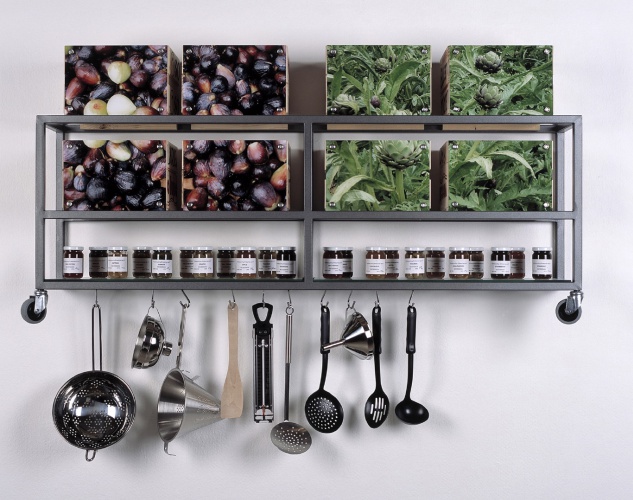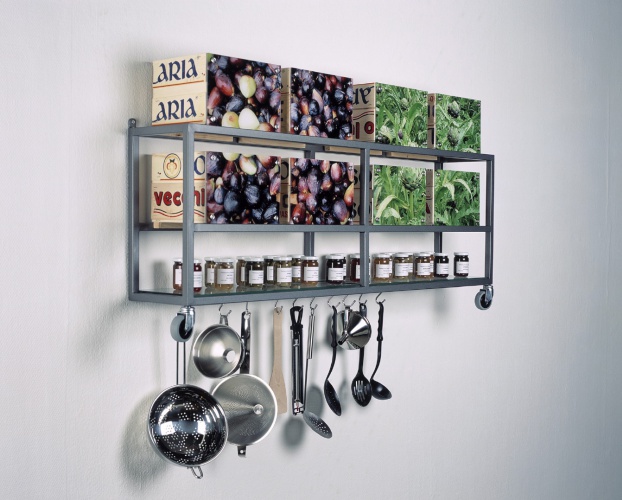HortiRecycling - Wall unit
Date:
2005
Ref:
0640
Materials:
Steel structure, 2 glass shelves, 8 recycled fruit crates, 8 laminated Lambda photographs, 24 labeled and signed jams, various cooking utensils, wheels
Dimensions:
67 x 90 x 22cm
Catalogued:
Lucy + Jorge Orta: Food Water Life, Princeton Architectural Press, NY, p.58; Lucy + Jorge Orta, Antarctica, Electa Italy, p61
Exhibition history:
2012 Tufts University Art Gallery, Aidekman Arts Center, Medford, USA; 2005 Barbican Art Gallery London, The Curve; 1999 Weiner Secession, Vienna, Austria
Courtesy:
Lucy + Jorge Orta
Lucy + Jorge Orta’s interest in food was inspired by the 1996 nationwide farmers’ protest against European free market legislation authorizing the importation of low cost agricultural produce from neighbouring European countries. French farmers, fearing their livelihoods in jeopardy, dumped their entire harvest – tons and tons of fruit and vegetables – onto highways to draw attention to their plight. The artists, shocked by the sheer waste of edible food and helpless to the plight of the farmers, began visiting weekly open-air markets in Paris to collect fresh produce discarded at the end of the day and to transform it into a series of artworks.
In 1997 Lucy + Jorge Orta staged their first exhibition to draw attention to the growing phenomenon of food waste. Entitled Dans le Meme Panier (All in One Basket) it was held in the Galerie Saint Eustache in the former wholesale market district of Les Halles in cental Paris. The exhibition include objects and sculptures constructed from salvaged fruit crates and photographs the artists took on their weekly gleaning expeditions. For the opening event they collected a staggering 300 kilos of discarded fruit, which was prepared by the famous Parisian chef-pâtissier Stohrer and then distributed to the general public. Using the fruit and vegetable market as an example of a growing urban phenomenon, the artists went on to stage Hortirecycling Enterprise (act II) at the Weiner Secession (Vienna, 1999), thus generating a wider public debate around the subject of consumer food waste and the inequalities of global food distribution.

